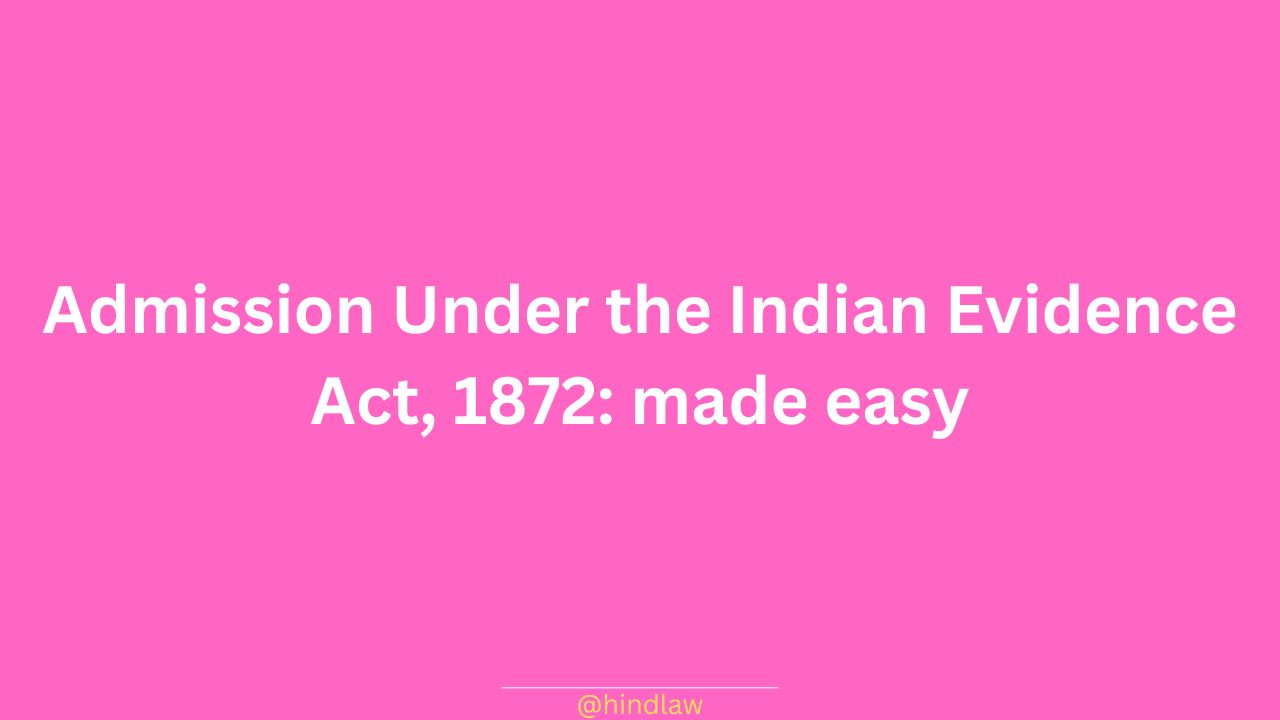Confession under the Indian Evidence Act, 1872: Simplified for Law Students
Introduction Confessions play a pivotal role in the criminal justice system, shaping the outcome of trials and influencing judicial decisions. The Indian Evidence Act, 1872, lays down specific provisions regarding the admissibility and implications of confessions. In this article, we’ll delve into the basic concepts of confessions under the Act, provide illustrative examples, and explore…
Read More “Confession under the Indian Evidence Act, 1872: Simplified for Law Students” »










